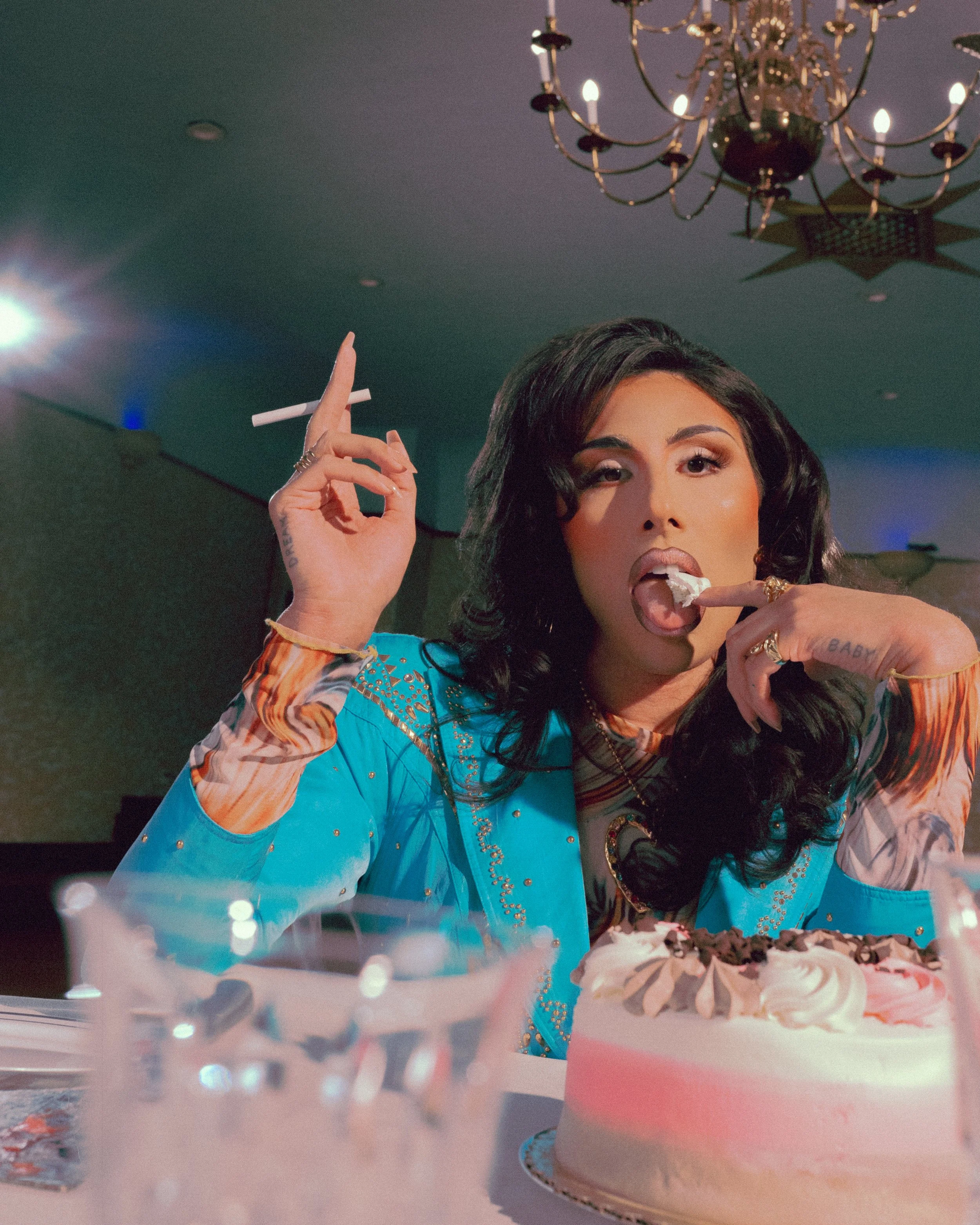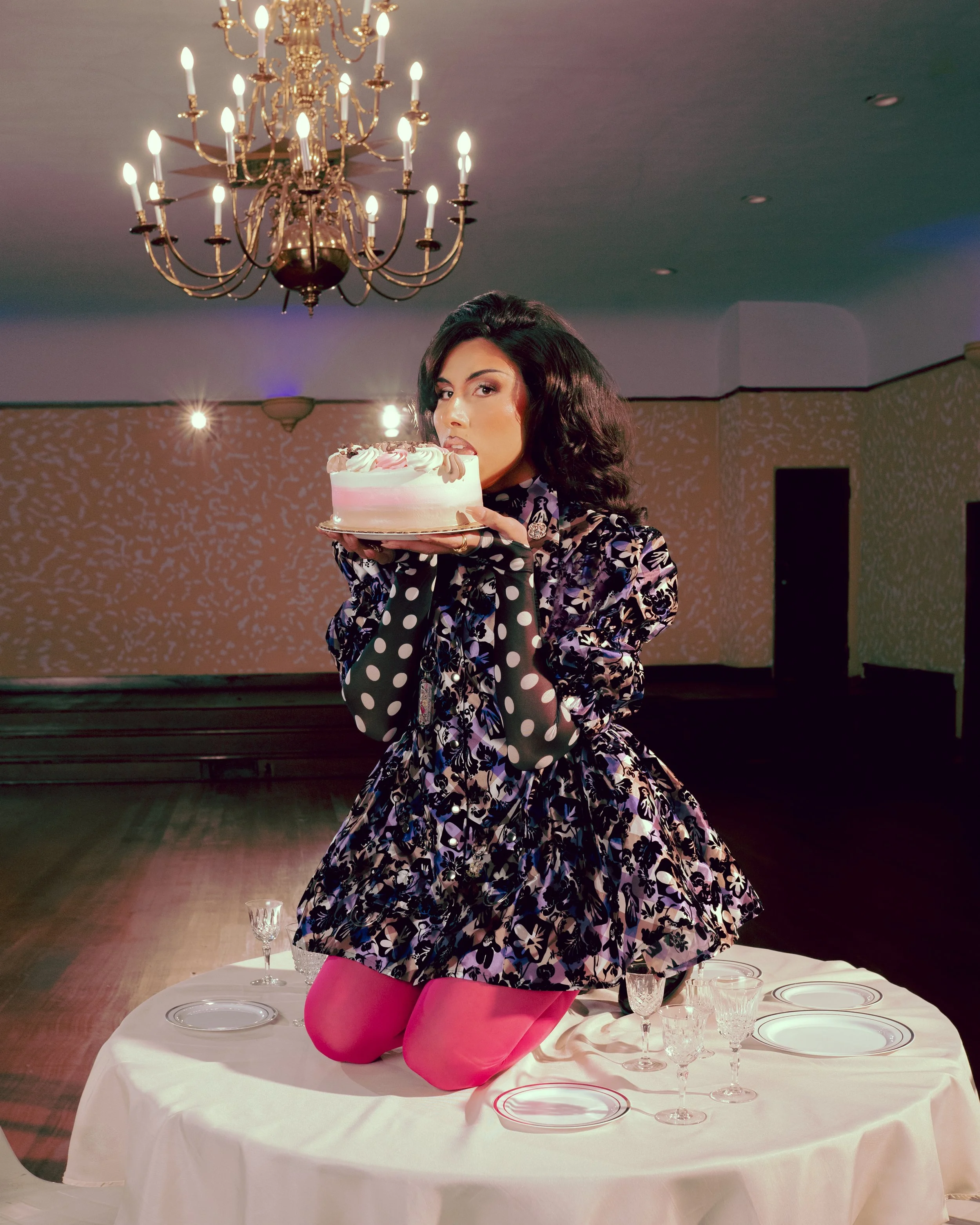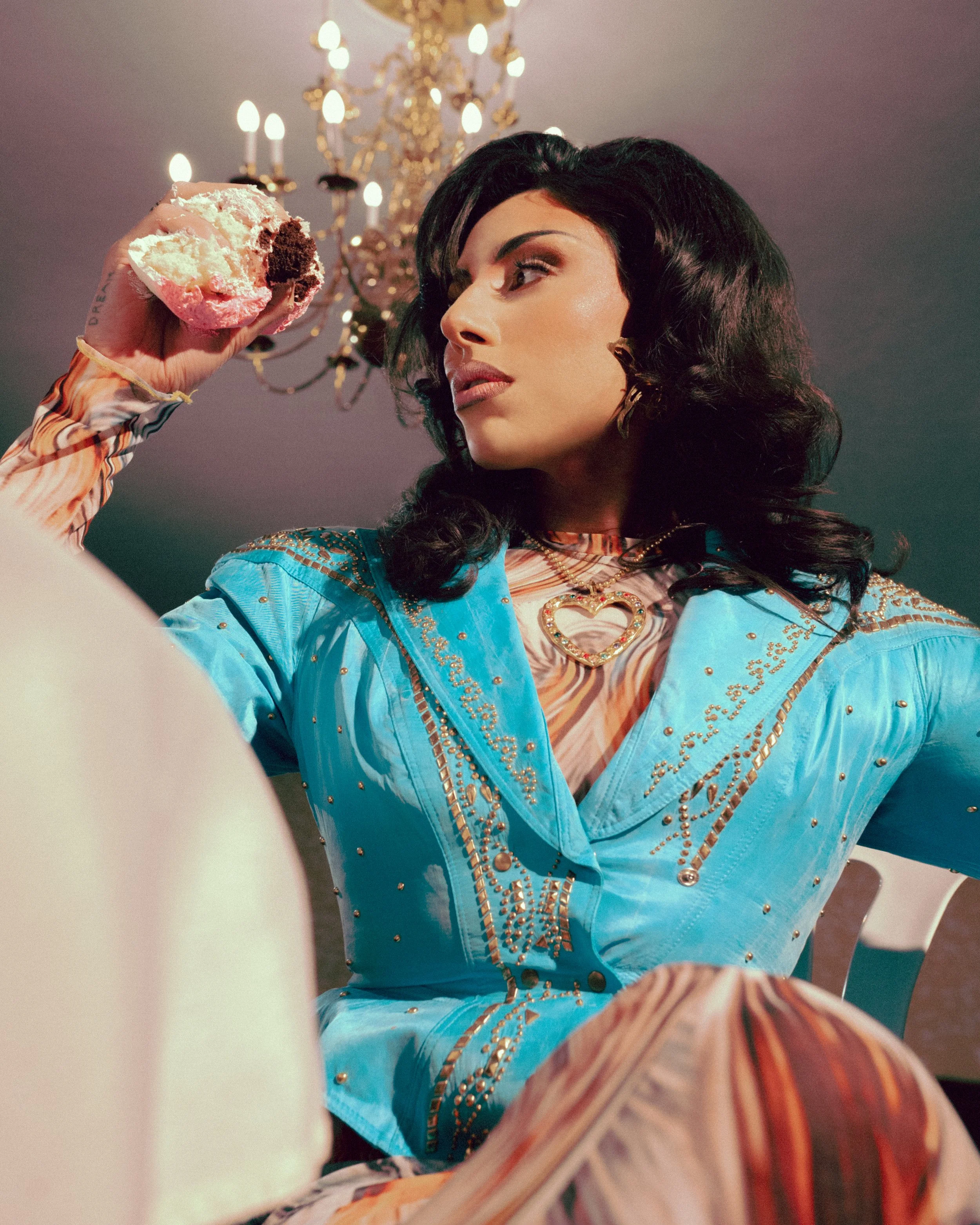Filmmaker River Gallo on Ponyboi, Activism, and a New Queer Tipping Point
Words: Sam Moore
Make it stand out
Ponyboi has been a long time coming. The 2024 feature film, written by and starring the actor and activist River Gallo, has been on their mind in one form or another for as long as they’ve been making art. “Ponyboi the short was actually an adaptation of two different theatre pieces that I did when I was at acting school,” Gallo reveals over Zoom. “So it was something that I’ve been brewing in my, like, artist’s cauldron for years.”
When Gallo describes researching Ponyboi as a short, they talk about the moment that they came across the word “intersex” for the first time and finally having the language to describe themselves. It was in learning the term that Gallo developed a fervour for challenging the medical establishment. For Gallo, the discovery of an intersex community - and the activism surrounding it - made them realise that their own surgery during adolescence was “medically unnecessary”, something further complicated by their still-evolving relationship to gender: “now, identifying as non-binary and trans-femme, it gives me gender dysphoria.”
It’s no wonder that Gallo describes this discovery of the term intersex, and the making of Ponyboi, as being their “gateway drug to activism,” saying that it led them to being vocal about “the human rights violations involved in the history of our lives,” which they refuse to separate from their work as a filmmaker. Gallo says that they feel a duty, as an activist, to share their story on film. Gallo recalls sitting at a dinner where they were sitting next to America Ferrera, when the recently Academy Award nominated actress asked them about the film they were making. This created a bizarre experience for Gallo: explaining the film - and their own life - to Ferrera. Even though the filmmaker admits that telling people about their “testicles, or lack thereof” can be uncomfortable, they insist that these conversations are an important part of intersex activism, “garnering enough people to have an awareness to then be able to alter [their] hearts and minds.”
Set on Valentine’s Day in New Jersey in 2003, Ponyboi tells the story of the eponymous titular character, an intersex sex worker, who gets caught up in a bad drug deal and ends up on the run from the mob. Gallo’s short was the first time an intersex actor had played an intersex leading role - which they reprise here - and which they insist played an important role in the crime thriller story that gets told in Ponyboi. Gallo enthuses that we’re at a “tipping point where queer cinema has started to become just cinema,” a shift in the kind of stories that get told which can often feel like a double-edged sword - the feeling that while there is an increasing possibility for queer stories to find funding and audiences, they might often feel the need to adhere to certain story beats and themes in order to do so.
“As an intersex person, my gender defies expectations, so I’ve always thought the ways I’ve played with genre in the movie reflect my own experiences being intersex, allowing myself the freedom to take up as many boxes as I want.”
For a while now, stories of coming out and, more recently, of transition, have been the ones that are most likely to find the spotlight; just look at Oscar winning films like The Danish Girl, or the runaway success of films like Love, Simon. These are films that offer snapshots of queer experience that are easy for audiences to understand, the kinds of things that Gallo calls, with a laugh, “tenderqueer dramas.” But the genre alchemy of Ponyboi - a story about an intersex sex worker in the midst of a crime film - for Gallo was always a vital part of the film: “As an intersex person, my gender defies expectations of what people think my gender would be […] so I’ve always thought the ways I’ve played with genre in the movie reflect my own experiences being intersex, allowing myself the freedom to take up as many boxes as I want.” Gallo also mentions the importance of New Jersey to both the film’s narrative, and its subversive queerness, saying that that “coming from New Jersey, and coming from a place where the mythology of mob movies comes from, I just knew that I wanted as a queer person to write a story that could centre this intersex, maybe trans questioning person [...] behind the gun.”
“It also feels really sad to me that [intersex representation] hasn’t happened before, and that intersex people haven’t seen themselves in the media before.” Gallo adds. But Gallo is hopeful for what the future of what both queer art and activism might hold. They’re generous about the tipping point in queer cinema, singing the praises of Everything Everywhere All At Once as a Best Picture winning film with a queer storyline - one that, like Gallo’s own work, aims to refuse the predictable story beats of queer narratives. The increasing mainstream acceptance of queer art doesn’t necessarily dilute the power that it can have for its intended audience, Gallo doubles down, saying “Queer cinema will always be queer. For queer people, it will always have a different place than it will for cis or straight people.”
Photographer/Creative Direction: Kirt Barnett | Hair: Rachel Lita | Styling: Sarikka Raman | MUA: Andrew Nunez | Gaffer: Kevin Cecil | Grip: Josh Gordon | BTS: Janelle Brosnan







